hannahklein725
New Member
my chameleon is having diarrhea and she’s been having both eyes closed can someone please help!!!! i took her to the vet for the eye thing and they said they don’t know what’s wrong with her but now she’s having diarrhea.
Follow along with the video below to see how to install our site as a web app on your home screen.
Note: This feature may not be available in some browsers.
she just had diarrhea about 30 minutes ago for the first time but no they did notDid the vet do a fecal test for parasites?
Please post photos.
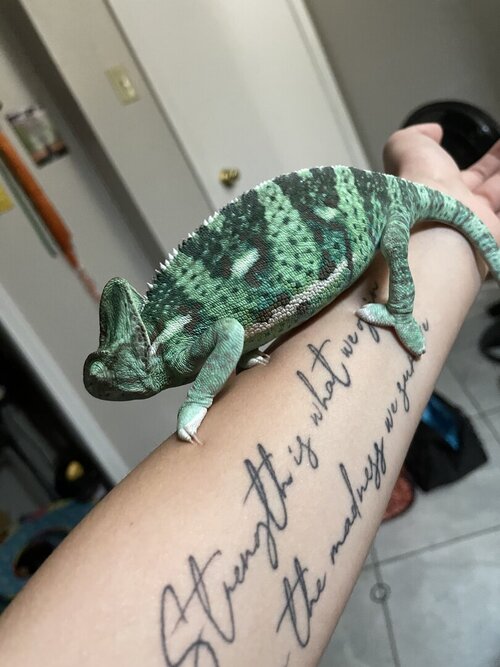
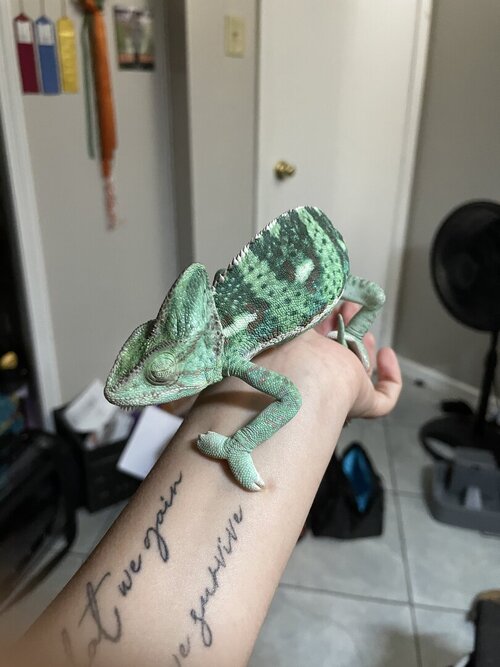
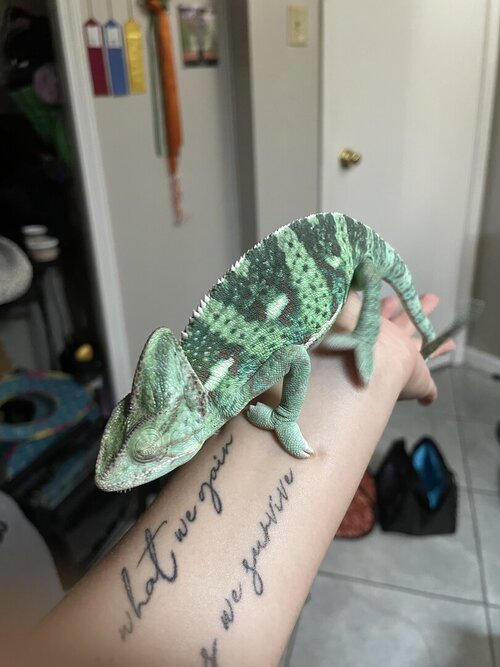
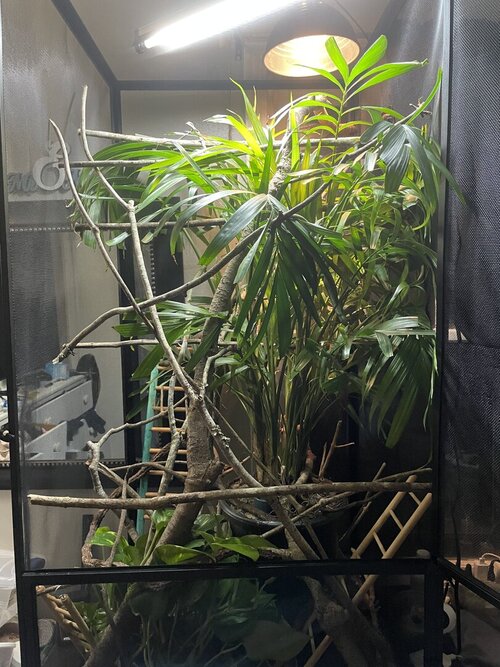
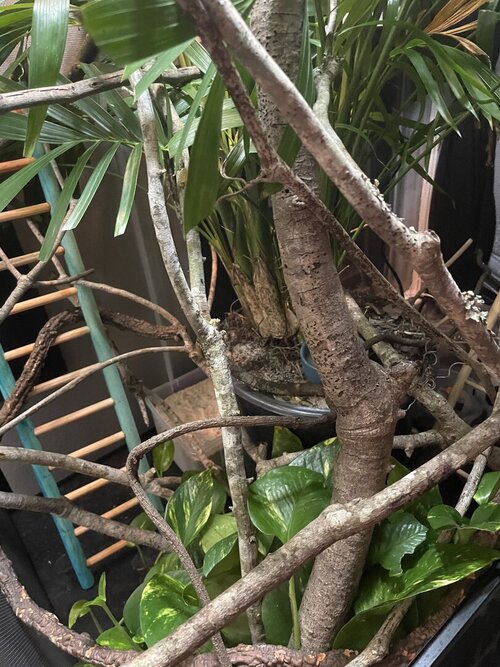
yes it’s a reptile vet, yet they can’t figure out her eye problems so i’ll have to bring her to a different reptile vetPlease post some photos of your chameleon and the whole cage.
Please answer the questions in the how to ask for help thread near the top of the health forum?
Was the vet a chameleon vet?
Chameleon Info:
- Your Chameleon - The species, sex, and age of your chameleon. How long has it been in your care?
- Handling - How often do you handle your chameleon?
- Feeding - What are you feeding your cham? What amount? What is the schedule? How are you gut-loading your feeders?
- Supplements - What brand and type of calcium and vitamin products are you dusting your feeders with and what is the schedule?
- Watering - What kind of watering technique do you use? How often and how long to you mist? Do you see your chameleon drinking?
- Fecal Description - Briefly note colors and consistency from recent droppings. Has this chameleon ever been tested for parasites?
- History - Any previous information about your cham that might be useful to others when trying to help you.
Cage Info:
- Cage Type - Describe your cage (Glass, Screen, Combo?) What are the dimensions?
- Lighting - What brand, model, and types of lighting are you using? What is your daily lighting schedule?
- Temperature - What temp range have you created (cage floor to basking spot)? Lowest overnight temp? How do you measure these temps?
- Humidity - What are your humidity levels? How are you creating and maintaining these levels? What do you use to measure humidity?
- Plants - Are you using live plants? If so, what kind?
- Placement - Where is your cage located? Is it near any fans, air vents, or high traffic areas? At what height is the top of the cage relative to your room floor?
- Location - Where are you geographically located?
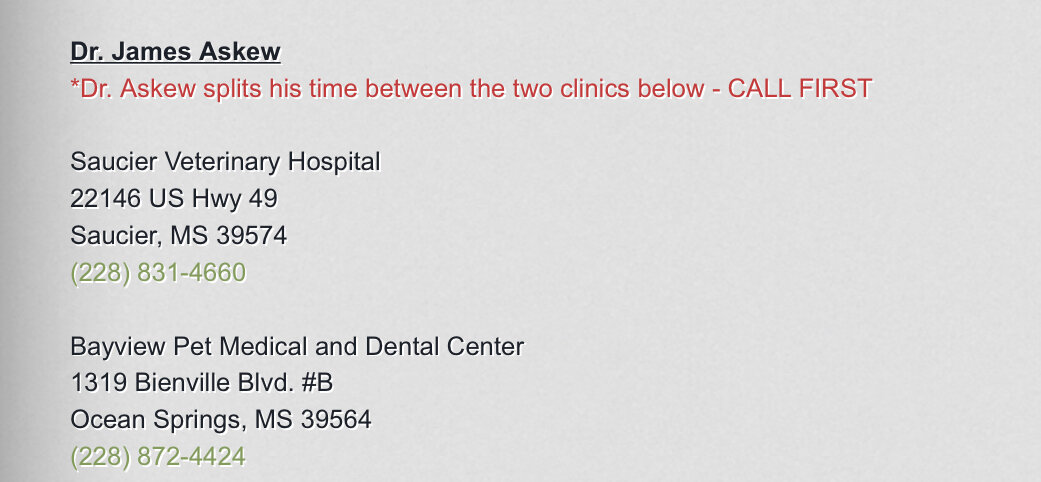
thank you so much!! i’m actually trying to get in touch with dr. askew as we speak. where do you get your silkworms from?I don’t see anything in your husbandry that could cause diarrhea. Having a vet visit and fecal check for parasites is the best course of action. I’d also suggest having an x ray to see if she’s carrying eggs and if so, what stage of development they are in.
I do see a few things that I’d suggest changing to help reduce the number of eggs she produces and the frequency of laying. Larger clutches can increase risks of becoming egg bound and frequent laying have proven to shorten our ladies lives. I keep my girls basking temps around 80 and no higher. I feed them about 3-4 feeders, 3 days a week plus the occasional treat of bsfl pupated into flies. I’d also stop the mealworms and wax worms as staple feeders. While and occasional mealworm is ok, they don’t make great staple feeders and it’s said they can be hard to digest. Wax worms are very fatty and should only be treats. I love silkworms, which along with roaches I’ve been told by a great vet are the most nutritious.
For a vet, I only know of Dr Askew. From his YouTube videos, he’s pretty experienced with a large number of exotics, including chameleons.
View attachment 307777
I primarily get my silkies from either https://www.serenitysilkworms.com/ , https://morifeeders.com/ , http://www.lindasgonebuggie.com/ or https://www.ebay.com/usr/doossty66?_trksid=p2047675.l2559thank you so much!! i’m actually trying to get in touch with dr. askew as we speak. where do you get your silkworms from?